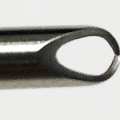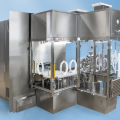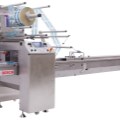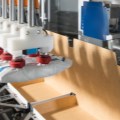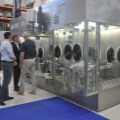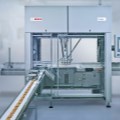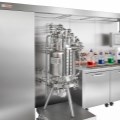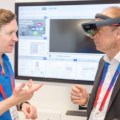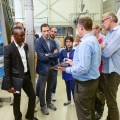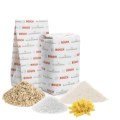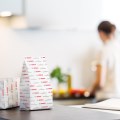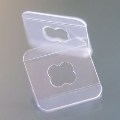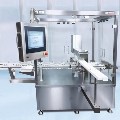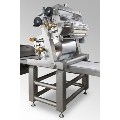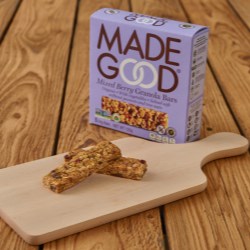If this is your company, CONTACT US to activate Packbase™ software to build your portal.
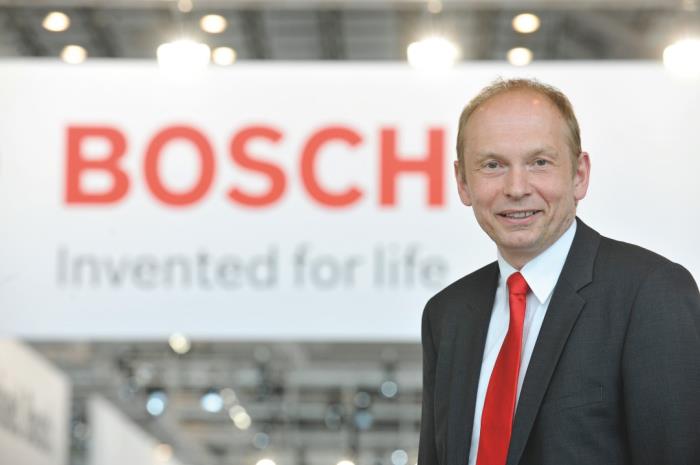

Speech by Dr. Stefan König, chairman of the managing board, Robert Bosch Packaging Technology GmbH, and Uwe Harbauer, member of the managing board, Robert Bosch Packaging Technology GmbH, on the occasion of the Bosch divisions` annual press conference at interpack 2017 in Düsseldorf on May 5, 2017.
Dr. Stefan König:
Ladies and gentlemen,
Welcome to Bosch Packaging Technology’s annual press conference at interpack 2017. We appreciate your taking the time to join us.
Over the next approximately half an hour, we will be giving you an overview of the business performance of what could be described as a very young company. We represent a newly minted GmbH, or private limited liability company, which we registered on May 2. It is an independent company within the Bosch Group. Why we took this path, the progress we made in 2016, and what strategies and key developments we will use to drive our new company forward are the topics we will address today.
An independent legal entity for the first time
Robert Bosch Packaging Technology GmbH is making its first appearance as an independent legal entity at interpack 2017. As of May 2, the Crailsheim, Viersen, and Waiblingen locations are part of the new company. We will then formally integrate Ampack in Königsbrunn, Hüttlin in Schopfheim, Pharmatec in Dresden, and Packaging Systems in Remshalden by 2020. The goal of this reorganization is to improve clarity and transparency as well as simplify essential business processes.
Since the second of May, my colleague Uwe Harbauer and I have held the following roles: Mr. Harbauer is a member of the managing board with responsibility for sales and pharmaceuticals. As chairman of the managing board, I am responsible for strategy, development, and our food business.
Sales at previous year’s high level
Bosch Packaging Technology’s general direction remains unchanged: we are, and will remain, a global provider of process and packaging solutions for the pharmaceutical and food industries; each of these areas accounts for about half of our sales.
Overall, at some 1.3 billion euros, our sales in 2016 again were on last year’s high level. Headcount rose from 6,200 to 6,300, and our associates are employed at more than 30 locations around the world. Many of our units saw excellent development last year. I especially wish to mention our pharma locations in Crailsheim and Hüttlin in Schopfheim; our food locations with the Center of Competence for vertical flow wrapping machines in Weert in the Netherlands; Ampack in Königsbrunn; and our business in India, which has had very positive development. Ampack GmbH, which became part of Bosch Packaging Technology in 2012, was even able to more than double its sales over the past year. Reasons for the overall same sales development as in 2015 are on the one hand the reluctant investment activity on the part of the large food producing companies, plus the low number of major insulin projects in the pharmaceutical industry. Another is that we are currently devoting a good part of our efforts to refocusing part of our business.
Positive trend in Europe
It was especially encouraging to see that business in Europe achieved strong gains, and the region’s share of sales rose to its current 40 percent. North and South America account for 31 percent, with Asia and Africa making up the remaining 29 percent. In Latin America, we posted double-digit growth. Our Brazil location, for example, saw outstanding development; in 2016 alone, it delivered 50 biscuit packaging machines to customers. Nevertheless, we do not see a substantially improved economic situation there.
North America remained stable at a high level, while sales in Asia fell below the previous year’s figures. India has been experiencing strong development, due in part to our joint venture with Klenzaids. At the same time, however, China has shown great reluctance to invest, and a host of homegrown competitors have emerged over the past few years. They have created immense competitive and price pressure, especially in the sector for simpler systems.
Strategic focus on connectivity and complete solutions
Allow me to elaborate on a couple cornerstones of our strategy, which we see as a basis for our future success on the market. We will continue to build increasingly better machines. To be specific, we will build machines that are even more reliable, easier to use, and more flexible with high output – and in the future, of course, also equipped with Industry 4.0 solutions. We have talented, committed people who develop and sell these machines; who set them up on the customer’s premises; and who provide support in the form of comprehensive service concepts. This is the basis we build on.
Over the past ten years, we have also systematically expanded our machine portfolio along our customers’ value chain. This has put us in a unique position: in the pharmaceutical and food industries, we deliver not only stand-alone machines, but also complete lines and systems as well as large-scale turnkey projects – for both liquid and solid products. Our systems can include everything from process technology to primary packaging and secondary packaging. If any individual components are not included in our portfolio, we have identified strong partners to work with. And for all aspects of our business, we have a network of locations that lend us a local presence with a global reach.
The benefit for our customers is clear: integrated project management right from the start. They receive coordinated system concepts instead of unsuitable interfaces, and of course integrated solutions for data management. Our solutions provide our customers with full support – from intuitive machine operation with the HMI 4.0 to Industry 4.0 solutions at all levels of production, plus comprehensive services along the entire value chain.
To optimize these benefits, we at Bosch Packaging Technology are working continuously on harmonizing all customer-relevant processes, enhancing the systems expertise of all our employees from sales to service, and of course refining the technologies. We aim to stay fit for the future by becoming a stronger team and intensifying synergies across locations.
We have consolidated our four business units into two – Pharma and Food – and have integrated our customer services organization into each unit as appropriate. It is our firm belief that, in the near future, proposals for our customers will always include connected solutions along with machines and services. After all, the better and more closely the developers of technical systems work with service staff and IT experts, the greater the benefit for the customer.
Over the coming years, we will stay committed to the alignment of being a strong partner to our customers for quality, productivity, and efficiency. As we do so, the profile of our associates, our organization, and our locations will continue to develop further. Our focus will always be on how we should position ourselves so that we can offer every customer an exciting integrated solution created just for them – regardless of whether the project scope is large or small.
Active support for the digital transformation
At interpack 2017, we will be presenting our product portfolio for Industry 4.0 on a grand scale for the first time. What does Industry 4.0 involve, exactly? Together with our customers, we are always on the lookout for new levers to take quality, productivity, and simplicity in production to the next level. This is made possible by improved use of data. Industry 4.0 tools laid the groundwork here: innovative sensors and automation components are being used more and more frequently, connectivity is easy to establish, you can essentially have as much storage space as you want, algorithms are provided by process and big data specialists, and comprehensive digitally supported services are possible. This is Industry 4.0 in general. But what is special about the Industry 4.0 solutions from Bosch Packaging Technology? They all offer an increase in quality, productivity, and simplicity in manufacturing. We can name several success factors at play here:
1) The Bosch Group overall is a leading supplier of technology and services, recognized for its strong manufacturing expertise, especially in large-scale automotive production. Lean production, connectivity of means of production, and control with our own Manufacturing Execution Systems (MES), plus some three years of massively driving forward Industry 4.0 solutions in more than 200 projects – we now take this wealth of experience and make it accessible to our customers in the process and packaging industry. Many of the technologies we are showcasing here are based on applications in Bosch plants. This means that our customers can rest assured that what we sell has already been proven in practice in Bosch-own factories. We have taken care in adapting our solutions specifically to the demands of the packaging industry – as part of our dual strategy as a leading provider and leading user of Industry 4.0.
2) Bosch customers receive numerous Industry 4.0 solutions from a single source. When designing customer solutions, machine experts and service personnel from Bosch Packaging Technology partner with software engineers from our connected industry software houses and work with automation specialists from Bosch Rexroth and data mining specialists. This is how they add value. At Hannover Messe last week, many Bosch solutions were presented, showing that the connected factory is already reality.
3) Bosch Packaging Technology solutions let customers decide if they would like to host data and services directly on the machine, on tablets, on PCs outside the facility – for example, outside a clean room – or externally at Bosch. Some customers wish to keep data and systems in their own IT infrastructure, while others prefer to use the Bosch IoT Cloud and related services.
Regarding concrete implementation, we will show the following innovations at interpack:
A central element for the machine operator is our new human-machine interface, HMI 4.0, which helps the user work quickly and efficiently in all process steps. As intuitive to use as a smartphone and scalable to the purpose, it guides the user step by step through the individual work processes.
As for shift managers and production planners, they will appreciate our digital Shopfloor Dashboard. This tool displays all relevant process parameters, production targets, and upcoming tasks in real time. All the relevant data is readily available for discussions about production – no paper needed. The displays are easy to navigate and can be adjusted to the individual user. As a result, operators and production managers can collaborate on site to systematically analyze production processes as a necessary first step for effective improvements.
Our Maintenance Support System (MSS) is designed for maintenance staff and machine setters. Planned and unplanned maintenance work are everyday tasks in a production facility. They have a major impact on productivity and plant efficiency, since diagnostics and execution often take a considerable amount of time. The MSS supports all kinds of maintenance and repair tasks. Legwork and repair times decrease significantly, and spare parts are not searched for – but found. Should a problem be detected, all the necessary information can automatically be sent to the service technician’s mobile device. The MSS Maintenance Assistant function provides information about upcoming maintenance and cleaning tasks as well as how to execute them. And with the Operations Assistant, operators themselves can draw up step-by-step instructions complete with text, images, and videos, and then store them in the MSS where they are accessible to anyone.
Consistent process safety
Manufacturers and end customers expect their products to be absolutely safe, especially in the pharmaceutical and food industries. The key to ensuring this is transparent, seamlessly controlled manufacturing processes that comply with international regulations. With our Industry 4.0 solutions, we help our customers make their products for end customers even safer. The Condition Monitoring Platform, for example, supplies details about the machine, line, or process status in question. Based on predefined tolerance limits – such as for temperature or cycle time – machine operators are automatically notified in the event of a deviation. This ensures process quality and makes it possible to take action early on. We will also be presenting Track & Trace solutions that allow to manage data for serialization and to connect individual components, packaging lines, or even entire factories.
Further solutions for tomorrow
In the future, we will offer our customers the option of evaluating data from the Condition Monitoring platform together with Bosch experts, and then deciding on recommendations for preventive maintenance and machinery optimization. Customers can also contact these experts over our secure Remote Service Portal, which we have recently expanded to allow users to share visual elements.
Due to its simplicity, visual support in general will play a key role in the future. It yields considerable benefits for all production employees, regardless of what qualifications they have.
So let us look even further ahead: Augmented Reality solutions, for example, open up completely new possibilities in service, such as for machine maintenance or format changes. Operators can get a precise picture of a machine’s inner workings without having to open it up. Computer animation with detailed instructions guides the user step-by-step through the maintenance procedure. At our booth, we use the PME 4081 mandrel wheel machine to demonstrate how augmented reality helps employees efficiently carry out a format change on the wheel’s folding mandrel. When doing so, operators can follow step-by-step instructions on their tablet – combined with real images from the machine. Such technologies are already highly suited for training purposes, and it will be only a few months or years before they become indispensable technology in manufacturing.
That concludes my remarks on Industry 4.0. As mentioned at the start, the development of pioneering machines will naturally continue to be part of our core business. I will now turn it over to Mr. Harbauer, who will present further highlights of our booth here at interpack.
Uwe Harbauer:
Pharma trends in practice
At this year’s interpack, we will once again be showcasing our line competence for the pharmaceuticals industry, from product formulation to secondary packaging for all packaging types. For our customers, the advantage is obvious: faster time to market thanks to interfaces that have been coordinated with each other.
Instead of listing all the new machines at our booth, I would like to highlight four topics of the pharmaceutical business.
The first of these is our competence in all aspects of liquid pharmaceuticals. For the filling and closing of liquid pharmaceuticals on production scale, we are presenting a variant of our ALF 5000 range. The platform is capable of very high output: up to 600 vials or ampoules per minute. For especially careful processing, we can add a patent-pending carrying rake transport. This system slightly lifts the glass containers to keep them from scraping against the machine guides. What’s more, the ALF series is characterized by its specific pharmaceuticals design. The machine table top has no recesses or interfering edges, making it possible to seal it off better from the sterile area. In addition, improved accessibility allows for simple and reliable cleaning. Regardless of whether the customer needs four, six, eight, ten, or twelve filling stations, the machine can be equipped with all common filling systems, such as pistons or peristaltic pumps. This trade show marks the first time we are presenting a third version of the ALF 5000: one solely for vials. Thus far, the ALF 5000 was available in an ampoule-only or a combined ampoule-and-vial version. As in the two other models, the third version also provides 100-percent inline process control.
One other particular highlight is our new inspection machine for leak detection in containers: Container Closure Integrity Testing, or CCIT. For the first time, we are now able to offer the full range of inspection technologies for liquid pharmaceuticals – leak detection as well as the broad spectrum of highly automated testing techniques for detecting particles and cosmetic defects. In the pharmaceutical industry, non-destructive CCI technologies are playing an increasingly important role. Defective containers that compromise the product’s sterility could pose a serious threat to patients if not discovered before the medication is dispensed. Possible consequences include ineffective drugs or undesired side effects. Suitable testing procedures help determine if sterility has been compromised – and thus play a critical role in patient safety.
Besides high-voltage leak detection and laser-based headspace analysis, our new KLV series now offers vacuum leak detection. In this process, negative pressure is created in hermetically sealed chambers. If the container has a defect that allows liquid or gas to seep out, the pressure will rise. The KLV can measure this increase in pressure with a high degree of sensitivity: thanks to the latest measuring technology, the machine can detect leaks up to five micrometers in diameter.
The third topic I wish to highlight is our Xelum platform for the Continuous Production of tablets and capsules, which is making its world debut at the trade show. With a new technology that we developed in house, the system manufactures powder continuously while intelligent sensors keep a constant eye on production conditions. It combines dosing, mixing, granulating, and pressing into one consistent process.
In continuous production, process steps that are normally separate in batch operation are carried out automatically and without interruption in one compact unit. When designing the Xelum platform, we looked to combine tried-and-true processes with the latest technology. Based on our innovative granulation technology, we developed a new continuous production system that allows the manufacturer to precisely dose even miniscule amounts of active substances. Transferring a process developed in the lab to a production facility is often a major challenge for pharma manufacturers. Here is where the Xelum platform’s continuous process can help: the platform can facilitate a direct transfer without scale-up from development to production, or manufacturers can develop a process directly on the platform itself.
Another topic regarding the aspect of safety is the fight against counterfeit drugs. Various laws and regulations regarding serialization have already been enacted or will take effect in the coming years. At Bosch Packaging Technology, we have taken inspiration for the intelligent application of current and future regulations from existing Bosch competencies and solutions for tracing automotive components, and then adapted these to the specific needs of pharmaceutical manufacturers and contract packagers. This solution not only serializes the packaging of medications – it also connects machine modules, software, and IT in a multi-stage process. In this way, we offer pharmaceutical companies a complete Track & Trace solution from a single source.
Flexibility is food’s trump card
That completes my brief outline of new solutions in our pharma business. But our booth is also showcasing many new solutions in food packaging. For example, we have a new development in the horizontal packaging of biscuits. Back at interpack 2011, we presented a seamlessly integrated system with feeder plus horizontal flow wrapping and secondary packaging for bar packaging. At that time, our focus was speed. Then at interpack 2014, we introduced the market to the first system capable of packaging both on-edge and on-pile cookies and crackers on one machine, with format change in record time. After selling this system many times now, this year, we are additionally introducing the dual-lane version of this two-in-one biscuit packaging system. When it comes to flexibility and speed, this new high-performance system goes a step further: It is the first system that can produce individual, pile, and slug packaging simultaneously on one machine, using two independently functioning lanes. In addition, we are demonstrating new, intelligent product infeed with linear motor technology on our high-performance systems. This makes it possible to switch formats at the touch of a button and feed in products quickly and without contact.
We also present modular, scalable systems for biscuit packaging, which offer a high degree of flexibility in many respects. The modular configuration lays the foundation for flexible system design and the form of the needed automation degree. From manually loaded entry-level solutions to fully automated packaging systems, there are harmonized modules available, from product infeed to case packing. This offers customers the security to be prepared for future demands.
Let me show you in a short video how these modular, scalable systems can grow with the customer`s business.
All these systems solutions` machines here at interpack feature the HMI 4.0, so operators experience the same user concept on each machine and can thus quickly get to grips with its operation. The flexibility of line design also makes it possible to operate two or more machines within the system. Furthermore, our scalable systems offer customers to optimally mirror their market demand with regard to performance, formats and packaging configuration.
You can see for yourself at our booth: On the system for on-pile biscuits, known as pile packs, a simple press of the button can create stacks of two to seven biscuits. Also product height can be easily and stepfree adjusted during running production in order to balance height deviations within the baking process. Automated balancing of the product stream allows for production of always complete pile packs, independent of the number of used packaging lanes.
On the system for biscuits on-edge, so-called Slug Packs, packaging can be produced with or without a plastic tray. The system enables quick and flexible setting of the product amount via the HMI 4.0, according to market demands. The gentle infeed of products is carried out via parametizable servo control, matching the individual product requirements.
For secondary packaging we preset an endload cartoner as well as a new integrated topload cartoner for folded carton erecting, loading, and closing. This topload cartoner was developed in cooperation with the Kliklok Corporation, which was acquired in 2015. It comprises Bosch’s proven Delta robot in combination with innovative linear motor technology for tailored carton transport. Both solutions offer various options for grouping and filling packaged products into cartons depending on the customer’s needs. For transport packaging, our booth also hosts a newly developed case packer which offers several packing style and format options.
For manufacturers of dairy products and other pumpable food, we are presenting our latest technologies for improving product safety and production efficiency. On display are two solutions for the filling of pre-formed containers: Ampack’s latest aseptic linear filling and sealing machine for dairy products, baby food, and clinical nutrition, and an upgraded version of the Osgood rotary filling machine.
The Ampack machine is the first of a new, modular machine concept, which we plan to use in the future for all our linear filling and sealing machines, from clean-fill to aseptic applications. Its standardized and modular design shortens delivery times considerably. The FCL 3080 A machine, which you can see here at interpack, is designed for maximum product safety as is required by this area of application. For this reason it has a smaller aseptic chamber, which minimizes the risk of food contamination. In addition, the machine chain is kept outside the aseptic chamber, thus preventing bacterial build-up. Available in two different hygiene versions (ultra-clean or aseptic), it is an ideal solution for products requiring a longer shelf life – a minimum of 4 to 6 weeks or up to 12 months, the highest level available on the market. For dairy and other food applications including viscous food products such as hummus or potato salad, we are presenting an upgraded version of our Osgood rotary series. This four-lane machine can handle up to 9,600 containers per hour. Available in either a clean or ultra-clean version, the machine is equipped for numerous packaging formats, depending on the final application – for instance, round and square containers with chambers, as well as seals with pre-cut foils, or film rollers. The rotary filler is also equipped with a new harmonized pump design, which provides greater filling accuracy and can be installed on different machines.
These systems, too, are ready for Industry 4.0: the biscuit and cracker packaging systems are equipped with the Condition Monitoring platform, as is the Ampack machine, which also features a first possibility to apply Track & Trace for the food industry. Both systems feature the new HMI 4.0 as well.
Comprehensive service portfolio
Service is and remains one of our key strengths, and is a top priority for our customers. A comprehensive range of services for improving the effectiveness and productivity of our systems provides a strong complement to our line and systems competence. Our services focus on preventive maintenance solutions plus tailored strategies for resolving unplanned machine downtime as quickly as possible.
For instance, at our booth you can see how optimized planning of part replacement, using preventive maintenance spare-parts kits, as well as custom maintenance agreements can proactively minimize unplanned downtime. Here is another area where digital solutions, such as the e-portal – the mobile version of which we are presenting at interpack 2017 – and Industry 4.0 solutions come into play. For the latter, the Remote Service is an example, now provided with visual and chat functions. It can provide the customer with precise support from any place at any time.
So, that concludes our short overview of highlights here at the show. There is of course much more to discover at our booth, and we would be delighted to see you there. I am now going to give the floor back to Stefan König, who will discuss a topic that is equally important to us: sustainability.
Stefan König:
The age of sustainability
For us, proper respect for nature, the environment, and resources is a key issue and is in keeping with the actions taken by our founder, Robert Bosch. Sustainability is a core component of Bosch’s corporate culture. We act responsibly – for people, nature, and the environment. Because of our commitment to this philosophy, Bosch Packaging Technology is expanding its portfolio of sustainable packaging solutions.
We want to provide technical answers to environmental questions; questions such as: What machines in a production facility use the most electricity? At what time is the most electricity consumed? We have Industry 4.0 solutions for this as well. The Energy Monitoring platform supplies transparent answers to these questions by pooling the relevant data on a single platform, and then providing this data for quick and easy analyses and improvements.
A second example regarding sustainability: With a specifically developed paper and a process for sealing it, we can pack dry goods such as sugar, grain, flour, or powder using sustainable, dust-tight mono-material paper instead of plastic film. This is the world’s first Sealed Paper Packaging, which we developed together with Swedish paper specialist BillerudKorsnäs. We presented this solution on a vertical form, fill and seal machine last year. At our booth here in Düsseldorf, we are now showcasing Sealed Paper Packaging on a mandrel wheel machine. And there is still plenty of untapped potential for extending this paper solution to other products and pack styles.
Bosch Packaging Technology and Bosch as a whole place a premium on sustainability. However, this is a very challenging topic that demands a diverse range of skills. For that reason, we work closely with various partners along the entire value chain. One of our goals in doing so is to strengthen our collaboration with BillerudKorsnäs, the paper specialist I just mentioned, and develop further paper-based packaging solutions. Moreover, we are active members in many initiatives and consortia that are tackling the future of packaging. We take a comprehensive approach to sustainable innovations and strive to support our customers throughout the entire process: developing and testing new approaches before implementing them in production.
Outlook
Ladies and gentlemen,
We believe we are well-equipped for the future and expect to see further growth in the coming years. Whether that growth is moderate or dynamic depends on how much of a tailwind we get from the market. In any case, we are convinced that the dazzling innovations and additions to our portfolio we are showcasing at interpack will propel us down this path.
We are excited to see how our customers react. If their responses are as sensational as they were at the initial customer demos, field tests, and pilot projects, then we should have plenty to do over the next few years.













